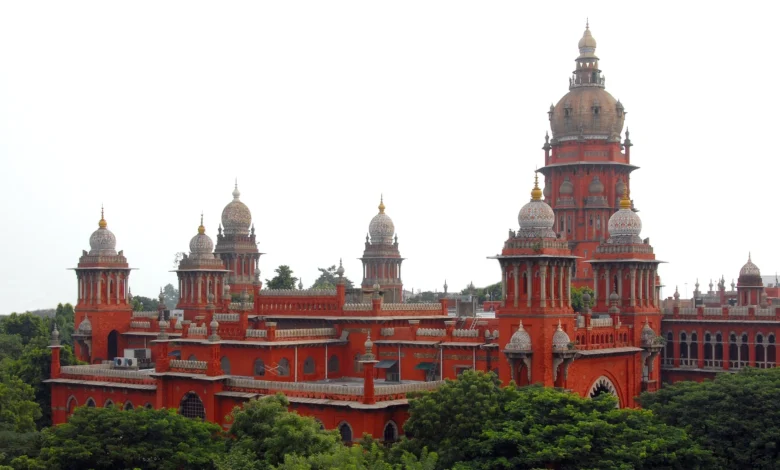Madras High Court Rules Against “No Work No Pay” for Employees Not at Fault

In the case W.P.(MD) No.17863 of 2023, the Madurai Bench of the Madras High Court made an important ruling regarding the principle of ‘no work, no pay.’ The Court decided that this principle cannot be applied when an employee is not at fault and is prevented from working due to an unlawful action. Specifically, the Court quashed an order by the Tahsildar that denied salary and service regularization to C. Markandan, a former Village Administrative Officer (VAO), for the period between 01.02.2018 and 18.03.2019.
Background of the Case
C. Markandan, who had been appointed as Village Thalaiyari in 1983 and promoted to Village Administrative Officer (VAO) in 2016, was prematurely retired in 2018 due to a mistake in his birth date. His birth date had been mistakenly recorded as 28.01.1958 instead of the correct 23.03.1961, which led to his early retirement on 30.04.2018. When he requested a correction, his application was rejected because it was submitted after the five-year time limit set by service rules.
However, in 2015, Markandan won a legal battle in civil court, and the authorities issued a corrected birth certificate. Despite this, he was not reinstated until March 2019, following a ruling by the High Court in the case WA(MD) No.147 of 2019. The Court ordered that his correct birth date be recognized and that he be reinstated to his position, which happened on 19.03.2019. He officially retired on 31.03.2019.
The Issue of Salary and Benefits
Despite the High Court ruling, the Tahsildar passed an order on 09.02.2023, denying Markandan his salary and retirement benefits for the period from 01.02.2018 to 18.03.2019, based on the ‘no work, no pay’ principle. The Tahsildar argued that since Markandan did not physically work during this period, he was not entitled to salary for that time. However, Markandan argued that he was willing and eligible to work but was unlawfully prevented from doing so because of the administrative error. He contended that the Tahsildar’s order violated the earlier High Court judgment, which had reinstated him and recognized his correct date of birth. Additionally, Markandan claimed that the order was made without giving him a chance to be heard, violating the principles of natural justice.
Court’s Ruling
Justice Battu Devanand, who heard the case, disagreed with the respondents’ argument. The Court ruled that Markandan was not at fault for the break in his service. It referred to a Supreme Court ruling in the case of Commissioner of Karnataka Housing Board v. C. Muddaiah [(2007) 7 SCC 689], which stated that if an employee is willing to work but is wrongfully prevented from doing so, the Court may order the authorities to grant the employee all benefits as if they had worked.
The Court also pointed out that it could never be said that Markandan was at fault for not working between 01.02.2018 and 18.03.2019. The ‘no work, no pay’ principle could not be applied in this case because Markandan was not responsible for the lack of work. Furthermore, the Court referred to an earlier ruling in W.P. No.9660 of 2019, emphasizing that an employee should not be penalized for being unable to work when it is not their fault.
The Court’s Decision
The Court ruled that the denial of salary and benefits to Markandan was unjust and illegal, as it violated the earlier High Court judgment. As a result, the Court quashed the Tahsildar’s order dated 09.02.2023 and directed the respondents to grant Markandan his full retirement benefits for the disputed period (from 01.02.2018 to 18.03.2019) within four weeks of the judgment.
The Court concluded that Markandan was entitled to all service benefits up until his retirement date of 31.03.2019. The proceedings that denied him these benefits were declared illegal and quashed.
Conclusion
The ruling emphasizes that the ‘no work, no pay’ rule should not apply when an employee is not at fault, especially if they are unlawfully prevented from working due to an administrative error. It also highlights the importance of adhering to earlier court decisions and ensuring employees are not penalized without proper justification. In this case, Markandan was rightfully entitled to his salary and benefits for the period he was unable to work, and the Court ensured that he received them.
